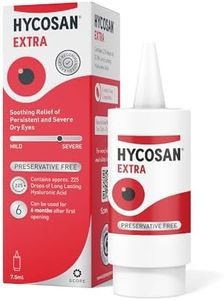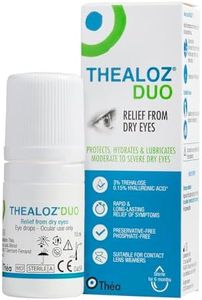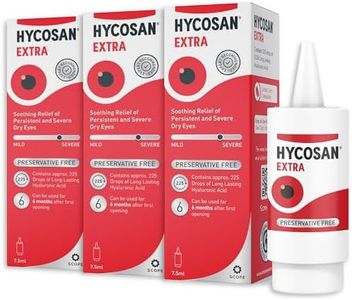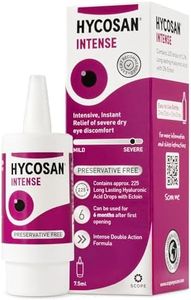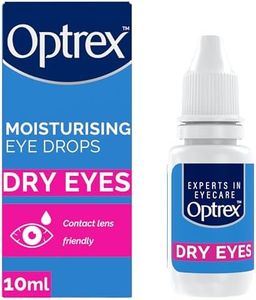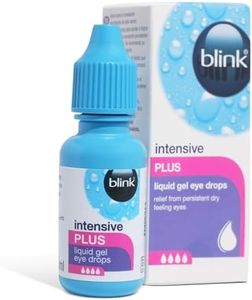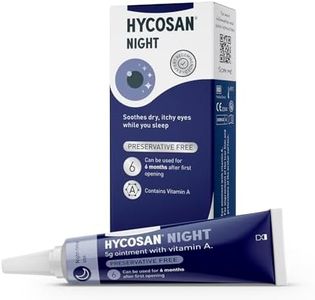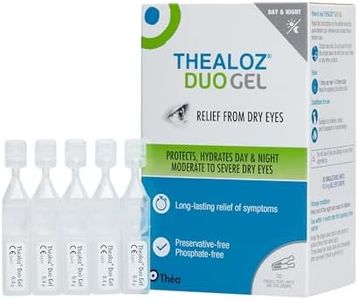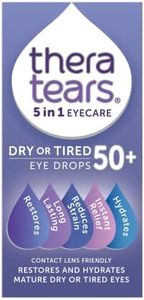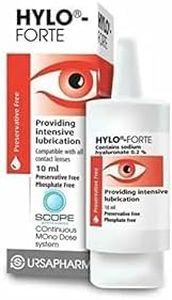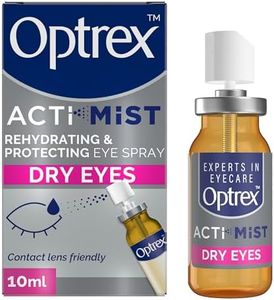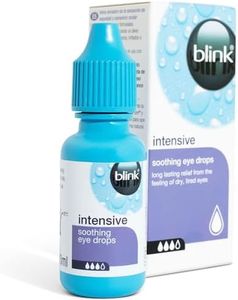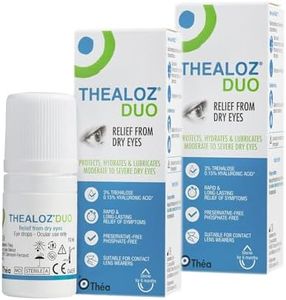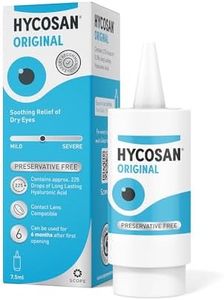We Use CookiesWe use cookies to enhance the security, performance,
functionality and for analytical and promotional activities. By continuing to browse this site you
are agreeing to our privacy policy
10 Best Eye Drops For Dry Eyes
From leading brands and best sellers available on the web.Recommended lists
Buying Guide for the Best Eye Drops For Dry Eyes
Choosing the right eye drops for dry eyes can significantly improve your comfort and eye health. Dry eyes can be caused by various factors such as prolonged screen time, environmental conditions, or underlying health issues. When selecting eye drops, it's important to consider the specific needs of your eyes and any additional symptoms you may be experiencing. Here are some key specifications to help you make an informed decision.Type of Eye DropsThere are several types of eye drops available, including artificial tears, lubricating drops, and medicated drops. Artificial tears are designed to mimic natural tears and provide temporary relief. Lubricating drops offer longer-lasting moisture and are ideal for more severe dryness. Medicated drops may contain anti-inflammatory or other therapeutic agents for specific conditions. Choose the type based on the severity of your dryness and any additional symptoms.
PreservativesEye drops can be either preservative-free or contain preservatives. Preservatives help prevent bacterial growth in the bottle, but they can sometimes cause irritation, especially with frequent use. Preservative-free drops are gentler on the eyes and are recommended for those with sensitive eyes or who need to use drops multiple times a day. If you have sensitive eyes or use drops often, opt for preservative-free options.
ViscosityViscosity refers to the thickness of the eye drops. Thicker drops (higher viscosity) provide longer-lasting relief but may cause temporary blurriness. Thinner drops (lower viscosity) are less likely to blur vision but may need to be applied more frequently. If you need long-lasting relief and don't mind occasional blurriness, thicker drops may be suitable. For quick relief without affecting vision, choose thinner drops.
Additional IngredientsSome eye drops contain additional ingredients like electrolytes, vitamins, or anti-inflammatory agents. These can provide extra benefits such as promoting healing or reducing inflammation. If you have specific needs, such as inflammation or a need for extra nourishment, look for drops with these additional ingredients.
Contact Lens CompatibilityIf you wear contact lenses, it's important to choose eye drops that are compatible with your lenses. Some drops are specifically formulated for use with contacts and won't cause any damage or discomfort. Always check the label to ensure the drops are safe for use with your type of contact lenses.
Application FrequencyConsider how often you need to use the eye drops. Some drops are designed for frequent use throughout the day, while others provide longer-lasting relief and require fewer applications. If you need constant relief, look for drops that can be used frequently. For occasional dryness, drops with longer-lasting effects may be more convenient.
